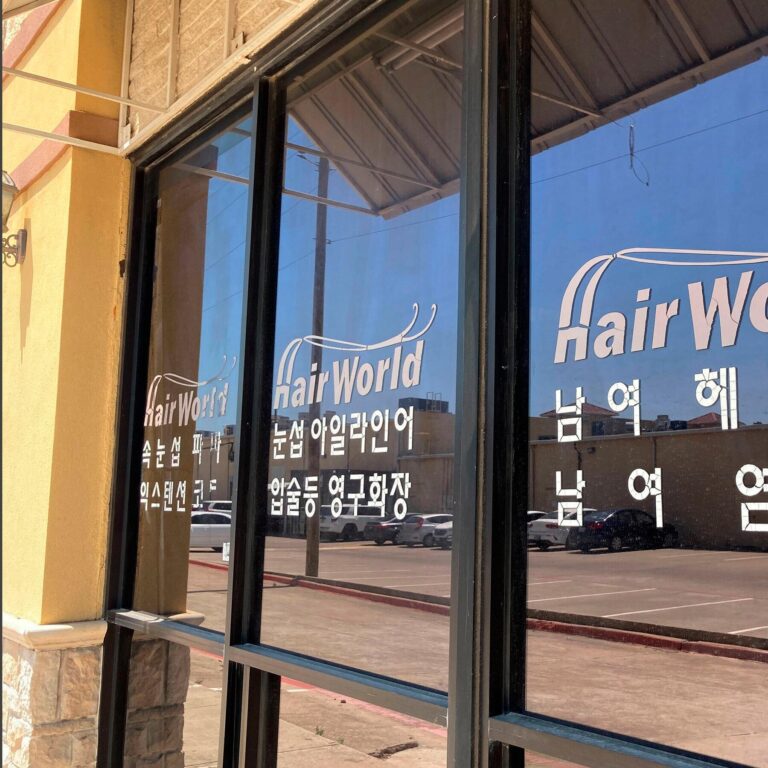Dallas Nail Salon Shooting Highlights Escalating Violence Against Asian-Owned Businesses
Surge in Attacks on Asian-American Enterprises Sparks National Alarm
The recent shooting at a Dallas nail salon, which resulted in multiple injuries, has intensified concerns about a growing wave of violence targeting Asian-owned businesses across the United States. Authorities are actively investigating whether this incident is connected to a series of similar assaults that have alarmed communities nationwide. This troubling trend reflects a resurgence of hate crimes amid heightened social tensions and misinformation, disproportionately impacting Asian American populations.
Community advocates and experts emphasize that these violent episodes are symptomatic of a broader climate of racial hostility. They stress the importance of addressing underlying causes while enhancing protective measures. Key issues identified include:
- Heightened risk faced by small businesses in predominantly Asian neighborhoods.
- Insufficient mechanisms for accurately reporting and tracking hate crimes.
- The amplification of xenophobic narratives through social media platforms.
| Year | Reported Hate Crimes Targeting Asians | Year-over-Year Increase |
|---|---|---|
| 2019 | 1,200 | ‚ÄĒ |
| 2020 | 3,800 | 217% |
| 2021 | 4,500 | 18% |
| 2023* | 5,200 | 15.5% |
*Preliminary data from 2023 indicates a continued upward trend in hate crimes against Asian Americans.
Connecting the Dots: Investigations Probe Links Between Local Incidents and National Hate Crime Patterns
Dallas law enforcement agencies are deepening their inquiry into the nail salon shooting to determine if it forms part of a larger pattern of racially motivated violence targeting Asian-owned businesses. Early findings suggest the suspect may have acted out of racial animus, mirroring attacks reported in major cities such as San Francisco and New York. Investigators are scrutinizing digital footprints, eyewitness accounts, and surveillance footage to uncover any affiliations with extremist groups or online hate communities.
Critical aspects under examination include:
- Geographical distribution of similar assaults on Asian enterprises.
- Temporal patterns indicating coordinated or opportunistic attacks.
- Potential involvement of hate groups or radicalized individuals.
- Demographic profiles of victims and the severity of violence inflicted.
| Incident | Location | Date | Business Type | Status |
|---|---|---|---|---|
| Salon Shooting | Dallas, TX | March 15, 2022 | Beauty Salon | Under Investigation |
| Grocery Store Vandalism | San Francisco, CA | February 23, 2022 | Asian Grocery | Confirmed Hate Crime |
| Assault Outside Restaurant | New York, NY | January 10, 2022 | Asian Cuisine | Under Review |
Community Advocates Urge Strengthened Security and Support for At-Risk Businesses
In light of the recent violent episodes, leaders within the Dallas Asian-American community are calling for a multi-faceted strategy to enhance safety and provide vital assistance to vulnerable business owners. They stress the importance of cooperation among law enforcement, local entrepreneurs, and advocacy organizations to implement effective security measures and foster resilience.
Proposed initiatives include:
- Deployment of advanced surveillance systems and improved lighting in commercial zones.
- Regularly scheduled safety training sessions tailored to small business operators.
- Creation of a community alert network to disseminate real-time warnings about potential threats.
- Access to financial aid through municipal grants and partnerships with nonprofit entities for security enhancements.
Additionally, mental health support and cultural awareness programs are highlighted as essential components to cultivate a safer, more inclusive atmosphere. A recent survey of affected business proprietors revealed the following concerns:
| Primary Concern | Percentage of Respondents |
|---|---|
| Apprehension about repeat attacks | 72% |
| Demand for increased police patrols | 65% |
| Interest in community engagement programs | 58% |
| Need for financial support | 47% |
Policy Experts Advocate for Legislative and Educational Reforms to Combat Anti-Asian Hate
Following the Dallas incident, specialists and community leaders emphasize the necessity of comprehensive policy changes aimed at both preventing hate crimes and addressing their root causes. Recommended strategies encompass strengthening hate crime laws, enhancing community policing, and expanding educational efforts to promote cultural understanding and reduce prejudice.
Priority actions include:
- Improving hate crime reporting systems to ensure timely and accurate data collection, facilitating swift law enforcement responses.
- Allocating dedicated funding at federal and state levels to support Asian American advocacy groups and mental health services.
- Mandating cultural competency training for police officers and public officials to foster respectful and informed interactions.
| Reform Initiative | Anticipated Outcome | Implementation Timeline |
|---|---|---|
| Enhanced Hate Crime Legislation | Greater deterrence and increased prosecution rates | Within 1 year |
| Community Engagement Programs | Stronger local support networks and resilience | 2-3 years |
| Educational Outreach | Long-term reduction in bias and xenophobia | 5+ years |
Experts warn that without these reforms, the cycle of violence and marginalization experienced by Asian Americans may continue unabated. They urge policymakers to view hate crimes as interconnected societal challenges requiring coordinated, sustained interventions.
Conclusion: Addressing the Rising Tide of Violence Against Asian Americans
The Dallas nail salon shooting, currently under investigation for possible links to a nationwide pattern of attacks on Asian-owned businesses, underscores a disturbing escalation in targeted violence against Asian American communities. As authorities delve deeper into the motives behind this and similar incidents, the situation calls for heightened vigilance, stronger protective measures, and unified community action. Ongoing investigations will be critical in illuminating the broader trends affecting Asian Americans and shaping effective responses to safeguard these communities.







